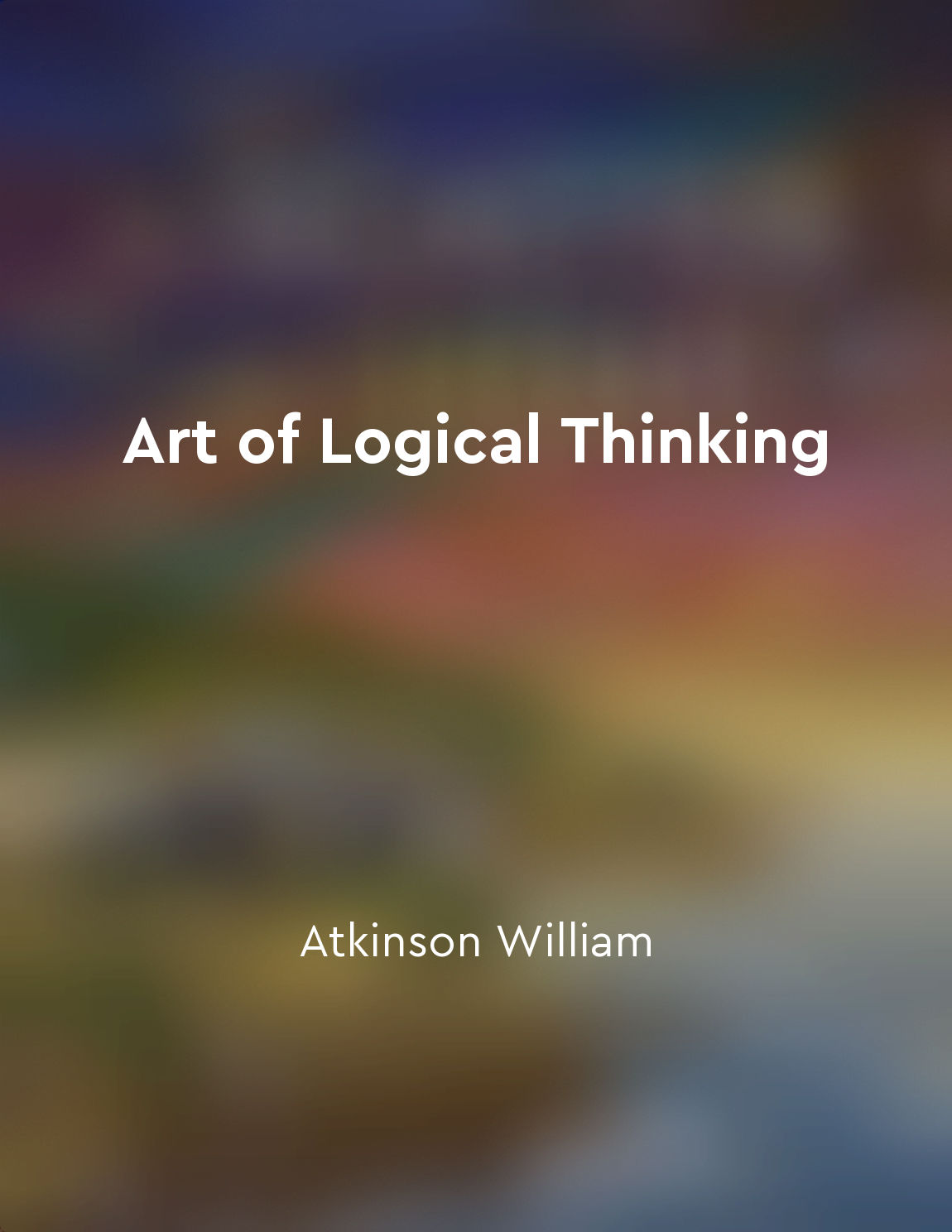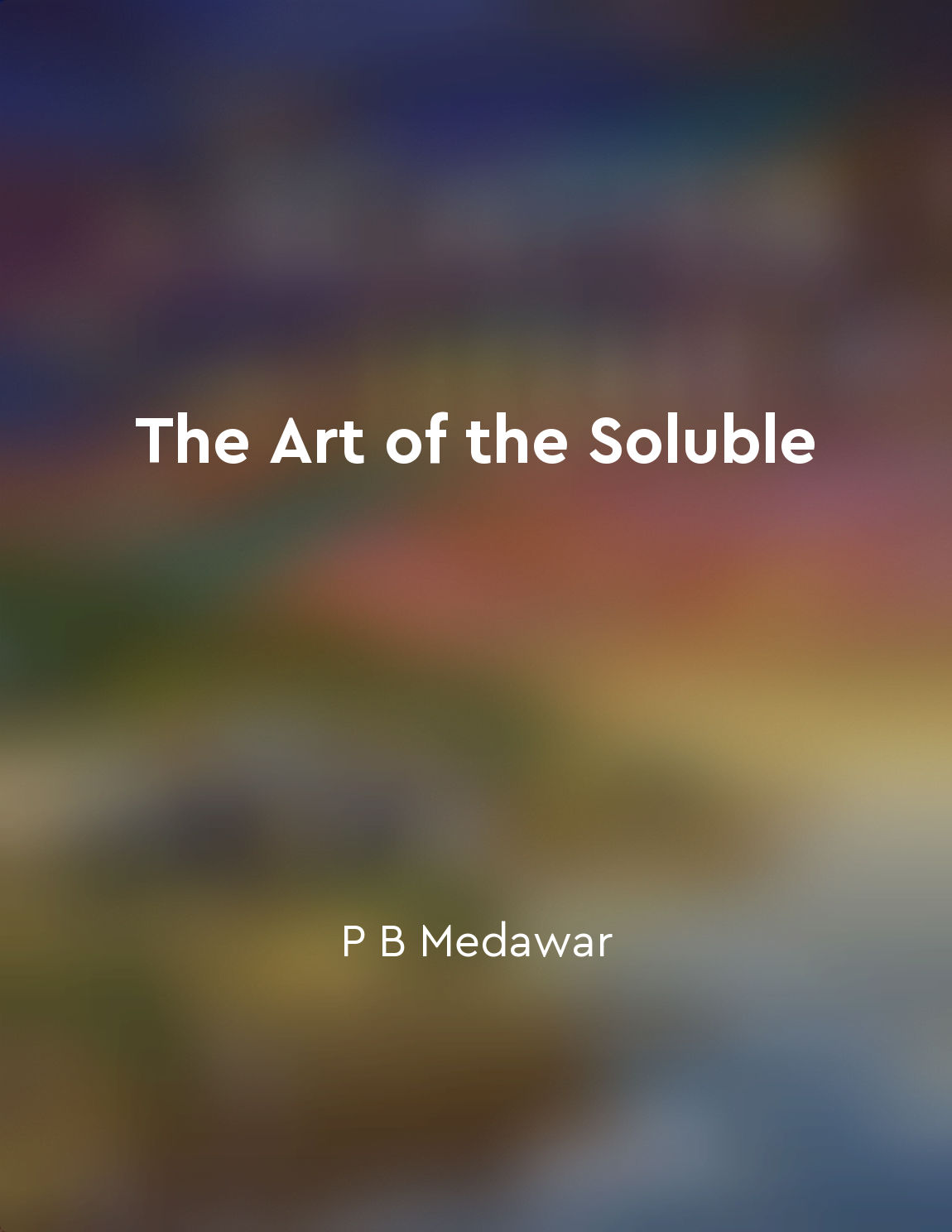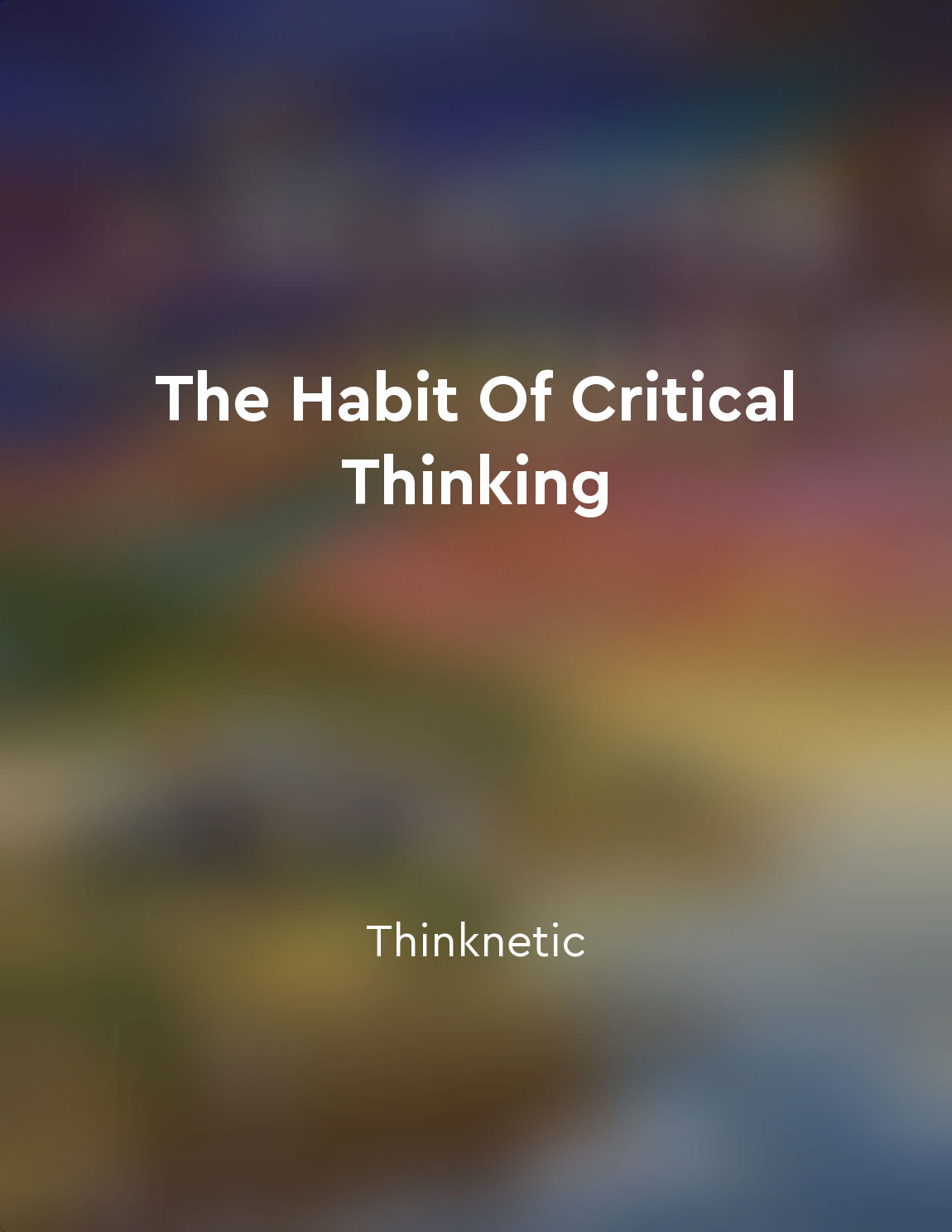Audio available in app
Critical thinking promotes intellectual humility from "summary" of Critical Thinking by David McKay
Critical thinking encourages individuals to approach issues and ideas with an open mind, acknowledging that their own perspectives may not always be complete or accurate. By actively engaging with different viewpoints and considering alternative perspectives, individuals develop a greater sense of humility about their own knowledge and beliefs. This intellectual humility is essential for fostering a deeper understanding of complex issues and for cultivating a willingness to reassess one's own beliefs in light of new information or evidence. When individuals engage in critical thinking, they are encouraged to question assumptions, challenge their own biases, and seek out diverse perspectives. This process of intellectual inquiry requires a willingness to acknowledge the limitations of one's own knowledge and to remain open to the possibility of being wrong. By embracing intellectual humility, individuals are able to engage more constructively with others, listen attentively to differing viewpoints, and collaborate effectively in the pursuit of truth and understanding. Furthermore, intellectual humility helps to guard against the pitfalls of arrogance and close-mindedness that can hinder one's ability to think critically and make sound judgments. By recognizing the fallibility of one's own beliefs and remaining open to the insights of others, individuals are better equipped to engage in productive dialogue, navigate complex issues, and arrive at well-reasoned conclusions. In this way, intellectual humility serves as a cornerstone of effective critical thinking, enabling individuals to approach problems with a sense of intellectual modesty and a commitment to seeking truth and understanding.- By promoting intellectual humility, critical thinking empowers individuals to engage more thoughtfully with the world around them, to challenge their own assumptions, and to cultivate a deeper appreciation for the complexity and nuance of the issues they encounter. Through the practice of critical thinking, individuals can develop the skills and dispositions necessary to navigate a rapidly changing world with clarity, insight, and intellectual integrity.
Similar Posts
Embrace uncertainty and ambiguity
Life is uncertain, that’s a fact. But we often forget that fact. We want everything to be certain, predictable, and under our c...

Coherence connects ideas in a logical flow
Coherence is the quality of connecting ideas in a logical flow. It ensures that each idea in an argument is presented in a way ...

Scientific knowledge is built upon a foundation of empirical evidence
In science, the cornerstone upon which all knowledge is built is empirical evidence. This is the solid bedrock upon which the e...
Aligned with NCERT guidelines
The concept of being aligned with NCERT guidelines is essential for any educational material to ensure that it meets the standa...
Reflect on our experiences to gain insight
Reflecting on our experiences is a fundamental aspect of gaining deeper insight into the world around us. Through reflection, w...

Strive for continuous improvement
Continuous improvement is a fundamental concept in the realm of critical thinking. It involves the unceasing effort to enhance ...
Harness the power of imagination
To truly understand the concept of harnessing the power of imagination, we must first delve into the depths of what imagination...

